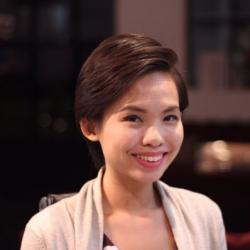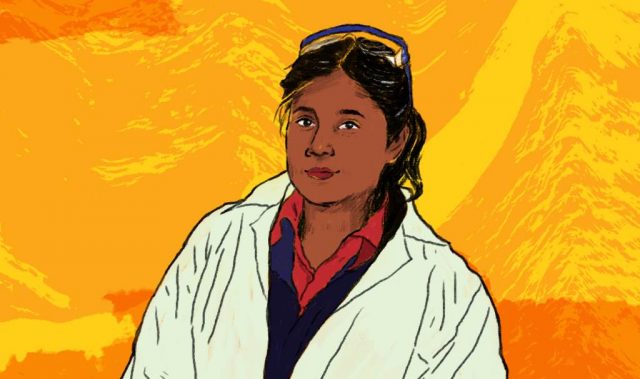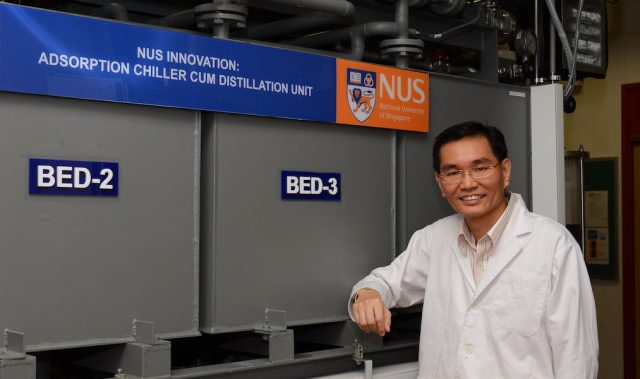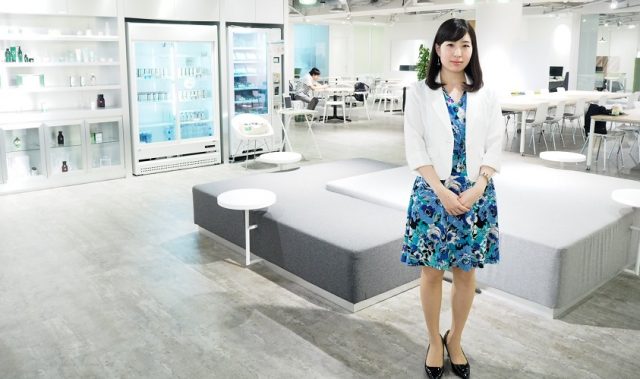
Seo Myungeun
Ewon Associate Professor
Graduate School of Nanoscience and Technology, KAIST
South Korea
AsianScientist (Oct. 18, 2016) – Following in his father’s footsteps, Seo Myungeun, a polymer chemist from South Korea, went into the same field and graduated from the same university. Beyond that, he is determined to make a name for himself in the field of self-assembled organic nanostructures, particularly based on block polymers.
Last year, Seo was awarded the 2015 Wiley-PSK JPS Young Scientist Award, which celebrates the research efforts of Korean polymer scientists, for synthesis of novel triarylamine monomers—and just after starting his own academic career as an Assistant Professor at KAIST in 2013, too.
Below, Seo tells Asian Scientist Magazine about his ambitions for his research career, the problems surrounding the pressure to publish high-impact papers, and his favorite way to relax after a long day.
- How would you summarize your research in a tweet?
Designing, synthesizing, and assembling new polymers to create useful polymer nanostructures for target applications.
- Describe a completed research project that you are proudest of.
When I was a postdoc working for Professor Marc Hillmyer at the University of Minnesota from 2009 to 2013, I worked on the development of new thin film composite membranes. It was not an easy task, and it took three years to achieve what we had in mind in the beginning of the project; but finally, I was able to make it work. Of course, there is still a long way to go to get a practically useful product, but we managed to produce five papers (including one published in Science) and one patent out of the project.
I am proudest of this project because I pushed myself very hard toward the goal to get meaningful results for the company, and from the academic standpoint, the results were also very fruitful. I believe Marc’s direction on the project and support from Dow was the key to success.
- What do you hope to accomplish with your research in the next decade?
I started my own research career only three years ago, and I hope to establish my own area of research within the next decade. At this moment, I am deeply interested in porous polymers and looking for new ways to synthesize nanoporous polymers with controlled pore size and shape at nanometer-length scale. This way, they may be used for various applications such as filtration, separation, and catalysis.
I am also interested in the possibility of self-assembling polymers during which the chains grow. This possibility has been recently realized and systems based on block copolymer self-assembly (so called “polymerization-induced self-assembly” or “polymerization-induced microphase separation”) have been reported.
However, these methods are still far from the sophistication seen during protein folding, which allows cells to form complex, functional three-dimensional nanostructures. Thus, I would like to figure out a way to mimic protein folding with synthetic polymers by controlling the sequence of polymerization and the interactions between segments of the polymer.
- Who (or what) motivated you to go into your field of study?
My father is also a chemist, so I guess it was natural for me to decide to be a scientist and major in chemistry. I am proud that I entered the same graduate school (Department of Chemistry, KAIST) and received my PhD as he did 30 years ago. Also, I am really happy that we are in the same field so we can talk about each other’s research and work together!
- What is the biggest adversity that you experienced in your research?
My first project in the graduate school was to synthesize a target molecule by substituting a nitro group in a benzimidazole moiety. The synthesis went OK until the final step; the resulting reaction was just too problematic.
Finally, I decided to explore a new synthetic route to the target molecule, and it turned out that the new route was not very reliable either. It took four years to finally develop a robust synthetic route, but the molecule was just not interesting anymore at that moment.
Still, it was a good experience to me after all that has happened, as I learned that unexpected problems always pop up in the course of research.
- What are the biggest challenges facing the academic research community today, and how can we fix them?
I think one of the issues concerning the academic society today is the pressure to publish papers in prestigious journals. While funding and administrating agencies have considered high impact papers important for the evaluation of researchers, we have seen significant problems arising because of this—too much focus on trendy research, and publication of false data.
I hope the atmosphere of the academic society will change to encourage long-term fundamental research. I believe this will eventually lead to more healthy research environments, where diversity and curiosity will be preserved, and result in unprecedented knowledge and technology.
Another challenge would be emergence of artificial intelligence. As we have seen from the Go match between Lee Sedol and AlphaGo, it is not just fictional creations showing up in science fiction novels anymore. It will affect all aspects of our lives, and science cannot be an exception. I think people from various disciplines including science, philosophy and law need to get together and discuss how to develop artificial intelligence for a better future.
- If you had not become a scientist, what would you have become instead?
Besides chemistry, I have been always intrigued by historiography. Thinking of how people in the past would have lived their lives and followed their destinies amuses me. I might have become a good historian as historians also heavily use scientific tools for their study!
- Outside of work, what do you do to relax?
Drinking a few cans of beer on my couch at the end of the day.
- If you had the power and resources to eradicate any world problem using your research, which one would you solve?
Indeed, if I could eradicate any problem, it would be global energy. If we could have an unlimited amount of energy and figure out how all the people on Earth can share it, most of our other problems will also be solved, such as shortage of clean water and the greenhouse effect.
But back to reality—I am not sure which one would be more difficult; discovering unlimited sources of energy or providing access to said energy to every human being on Earth.
- What advice would you give to aspiring researchers in Asia?
Enjoy your every day in the lab, and you will get what you deserve in the end. I wish you the best of luck!
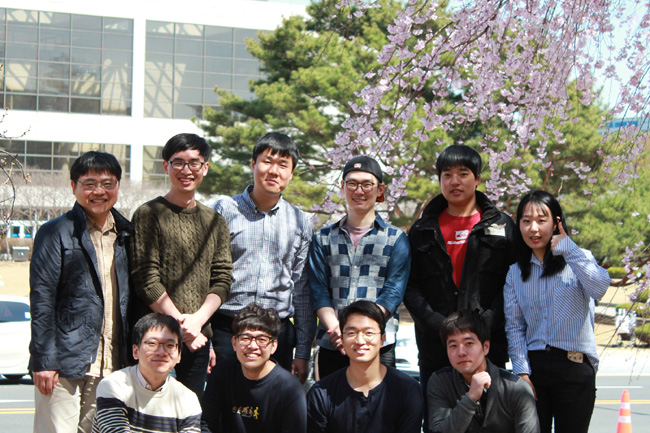
This article is from a monthly series called Asia’s Rising Scientists. Click here to read other articles in the series.
———
Copyright: Asian Scientist Magazine; Photo: Seo Myungeun.
Disclaimer: This article does not necessarily reflect the views of AsianScientist or its staff.




